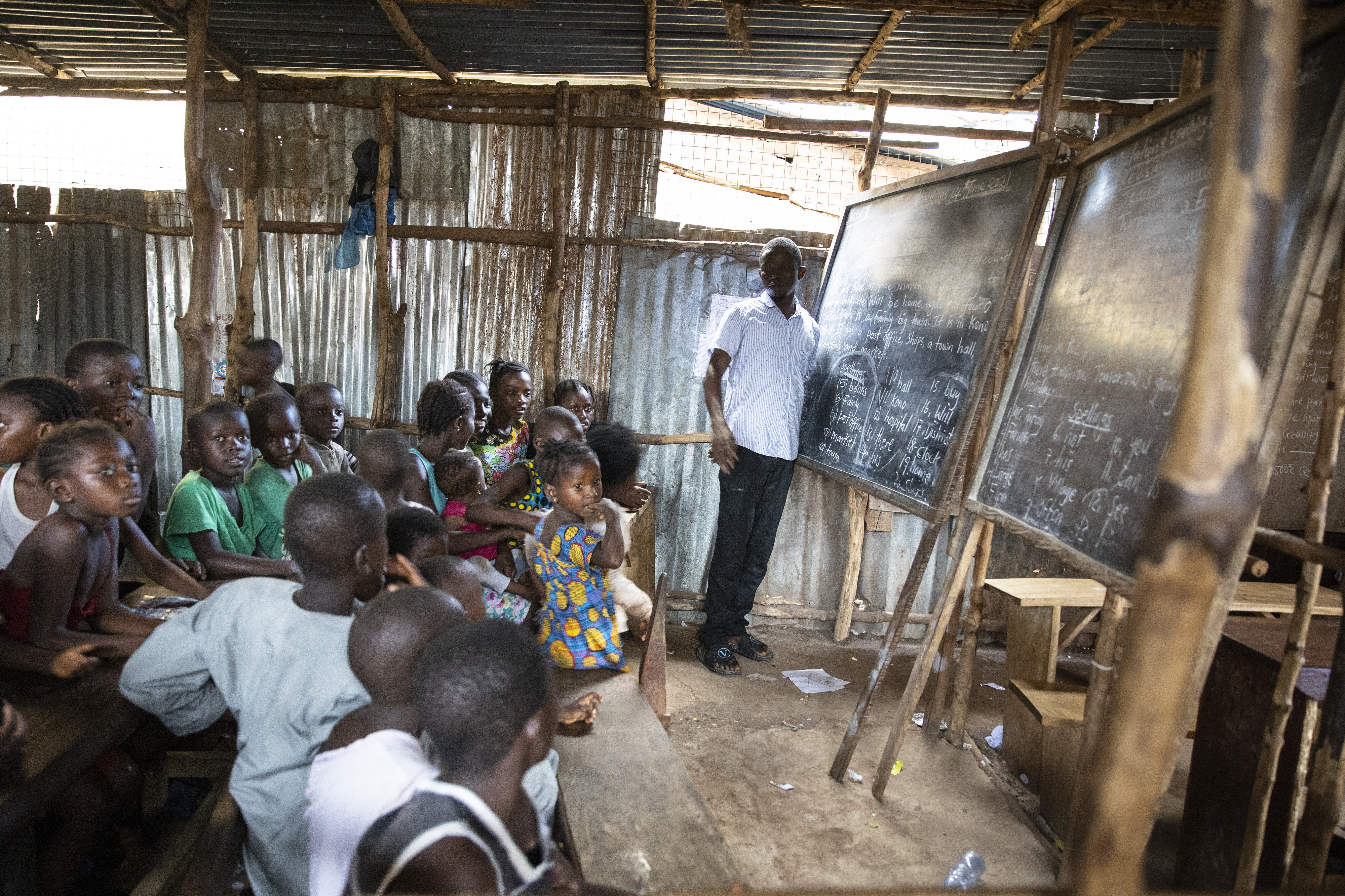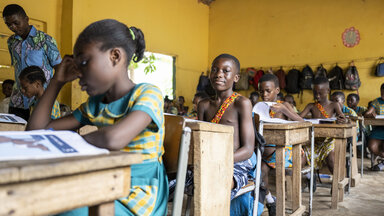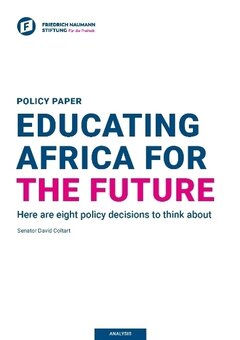Policy Paper
Educating Africa For The Future

Africa in many respects is at a crossroads. Decades after the end of colonial rule, much of Africa‘s great potential is unrealized. At the root of this is the crisis in the education sector. Education infrastructure is collapsing in many countries amid an increase in school enrolment, rising cost of education, high teacher shortages in both primary and secondary schools, and reduced public funding for basic and higher education.
Eight policy decisions need to be taken to reverse this trend:
1. The education sector must become the number one priority in national budgets.
2. African governments must elevate and value the teaching profession.
3. African countries need to identify and nurture their best talent.
4.African teachers need to optimise the use of technology to improve access to, and variety of, educational material.
5. The education curriculum must intentionally balance between academic and vocational education.
6. More public participation and stakeholder involvement in policymaking
7. Focus on the girl child.
8. Autonomy for schools rather than centralized control. Unless we address the crisis in education throughout Africa its economic and developmental goals will not be met. This crisis needs a broad continental consensus which transcends partisanship and nationalism.
An overview of the current status of education in Africa
For all of Africa’s wealth – the human capital, mineral resources and tourism potential – millions of Africans remain poor. Many young educated Africans are still endangering their lives trying to cross the Mediterranean Sea in leaky boats in search of better livelihoods. Millions of Africans across the continent, particularly in my own country Zimbabwe, have plans to emigrate to the United States, Europe, and elsewhere. One of the main reasons for this is the biting crisis in the education sector throughout Africa. Young people have lost hope in their own education systems, in their own countries, and in their own continent.
As a citizen and a former Minister of Education of Zimbabwe, I will use my country experience as a starting point to discuss the state of education on the continent and rely on the knowledge obtained as a result of that experience to propose pragmatic policy solutions to change the trajectory of our education systems.
In recent years, nearly a decade after I left office, teachers’ strikes have paralysed learning in many other countries including Kenya, Uganda, Cameroon, Ghana, Nigeria, Angola, Senegal, South Africa, Sudan, the Democratic Republic of Congo, Mauritania, Malawi, Tunisia, Guinea, Chad, Lesotho and Zimbabwe. Across the continent, there is deep rooted tension and distrust between the governments and the teaching profession. Teacher morale is at an all-time low. The strikes have become a phenomenon that governments must deal with, due to the shrinking public purse and the rise in competing priorities to address the many socio-economic challenges.
Besides, public funding of education has reduced. Global statistics show that as a portion of all government expenditure, the spending on education in Sub-Saharan Africa has fallen from a high of 18% in 2005 – the highest in a 20-year period – to 14% in 2021. As a share of the Gross Domestic Product (GDP), the education expenditure has largely stagnated at between 3-4% in Sub-Saharan Africa. The reduced investment in education has locked out approximately 19% of all children of school going age, who should be in school but are not. For many who are in school, textbooks are hardly available. The classrooms are few, such that in some countries like Zimbabwe, it is not unusual to find classes of 65 children, against the continent’s average of about 40 pupils to one teacher. And in other countries such as South Africa, university students had to protest the high cost of education. Even revered universities like my own alma mater, the University of Cape Town, are under threat.
Die Position: Afrika braucht mehr Schulen

Afrika steht vor einer gigantischen Herausforderung: Kein anderer Kontinent hat eine so junge und schnell wachsende Bevölkerung. Doch afrikanische Regierungen bauen weder genug Schulen, noch bilden sie eine ausreichende Zahl Lehrer aus. Schulen und Universitäten sind vielfach in desolatem Zustand, da der Anteil der Bildungsausgaben an den staatlichen Haushalt gesunken ist. Bildung muss endlich oberste Priorität bekommen in den nationalen Haushalten.

